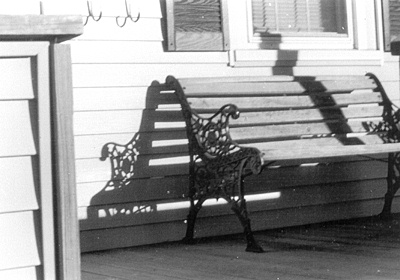All Nonfiction
- Bullying
- Books
- Academic
- Author Interviews
- Celebrity interviews
- College Articles
- College Essays
- Educator of the Year
- Heroes
- Interviews
- Memoir
- Personal Experience
- Sports
- Travel & Culture
All Opinions
- Bullying
- Current Events / Politics
- Discrimination
- Drugs / Alcohol / Smoking
- Entertainment / Celebrities
- Environment
- Love / Relationships
- Movies / Music / TV
- Pop Culture / Trends
- School / College
- Social Issues / Civics
- Spirituality / Religion
- Sports / Hobbies
All Hot Topics
- Bullying
- Community Service
- Environment
- Health
- Letters to the Editor
- Pride & Prejudice
- What Matters
- Back
Summer Guide
- Program Links
- Program Reviews
- Back
College Guide
- College Links
- College Reviews
- College Essays
- College Articles
- Back
Men of Jerusalem MAG
I remember walking up to the lectern to hold her hand. She would wait, hands open, ready to hold me while singing the closing songs of a Friday night Shabbat service. I remember looking out into the crowd as the edges of my mother's prayer shawl tickled my shoulders like trembling fingertips.
I grew up in a world of female voices – specifically, Jewish female voices. For years I watched my mother, a rabbi, lead thousands through prayer. I built my expectations for life on the idea that women's voices could reverberate with power. I loved that my Jewish community allows the light of women to penetrate its walls and fill its corners with teachings and leadership. I believed this fervently until the summer that my understanding of Jewish tolerance was challenged.
The summer I studied in Israel, we spent one Sabbath in Jerusalem, walking along the outskirts of the Old City. Like the rest of my classmates, I wore modest shorts and a T-shirt. As we passed through a courtyard, three elderly Jewish men on a bench waved at us, trying to catch our attention. Since no one else noticed, I walked over. One asked me if I was American. I smiled and said I was, and explained that we were here studying Jewish history. He asked me if I was Jewish. By this point, my entire group had turned the corner and left me standing alone. I smiled again and said yes. “Why, then, are you dressed so immodestly?” he asked. “Why show me so much disrespect? To Jerusalem? To Israel?” I opened my mouth to respond when he spat out, “It is because of people like you that our temples burned down!” He had just blamed my bare forearms and knees for the Romans burning down our temples 2,000 years ago!
Feeling naked, I nodded and said I would keep that in mind. Clearly I had seriously offended him. I felt guilty and bewildered at the thought that my body and gender could evoke such vitriol, but also impressed by the man's tenacity toward his standards. I had never before questioned myself as a Jewish woman in the presence of Jewish men. I didn't know whether to be embarrassed or angry, so I simply turned and walked away.
Now I devote myself to trying to understand and address intolerance and racial bias. I saw the same craziness in this man's eyes that has ignited every war and genocide, the same flame that has yearned to maintain one version of a societal standard. And yet, these flames only burn down bridges when we let them, when we refuse to acknowledge the other side of the story, when we become complacent in our ignorance.
This incident is not just about my religious identity. I spent the early part of my life looking through one particular lens – about religion, about racial tolerance, about gender bias. I yearn to expand the scope of my lens. It's time to learn more about cultural intricacies, about historical interactions, about the psychology and neurobiology behind human decision-making.
My interaction in Jerusalem was uncomfortable and ugly, but it helped me realize that it's necessary for me to grasp the full stories around me. Give me the men of Jerusalem. Through education will I gain the power to face them; by listening, I will know how to intermingle our thoughts without becoming flagrantly oppositional. I will not walk away again. Give me divergent voices. I want to listen, to grow, and to finally understand.

Similar Articles
JOIN THE DISCUSSION
This article has 0 comments.
